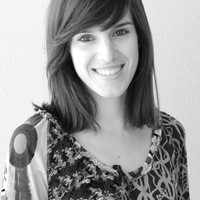Dr Silvia Rodriguez Vazquez, Assistant Professor, University of Geneva, Switzerland

Awardee of the Sydney-Geneva Research Partnership Award ‘Developing Shared Evaluation Frameworks for Digital Innovation in Culturally-Effective, Patient-Oriented Healthcare Translation and Communication: Australia and Switzerland.
Dr Silvia Rodríguez Vázquez is a Research and Teaching Fellow (maître-assistante) at the Department of Translation Technology (referred to by its French acronym TIM) of the Faculty of Translation and Interpreting (FTI), where she also worked as a post-doctoral researcher (June 2017 – December 2018) and a research and teaching assistant (April 2011- March 2016). After completing her PhD, she spent 12 months as a SNF post-doc fellow at Dublin City University (DCU), Ireland. During her stay, she collaborated with researchers from the Centre for Translation and Textual Studies (CTTS) and the ADAPT Centre. Over the last years, her research work has mainly focused on defining the role of translation and localisation professionals in the achievement of a more accessible multilingual web for all, as well as the competences and technology needed for such endeavour. Some of her other research interests include the accessibility of translation technologies for people with visual impairments and the use of controlled language to create easy-to-read content on the web. Silvia holds an MA in Translation Technologies and Localisation from the University Jaume I, Spain, as well as a Joint Doctoral Degree in Multilingual Information Processing and Translation and Intercultural Mediation by the University of Geneva (UNIGE), Switzerland, and by the University of Salamanca (USAL), Spain, for which she has received the USAL Outstanding Doctorate Award. She is member of the Cod.eX Research Group since its inception and is currently involved in the development and implementation of a Swiss Centre for Barrier-Free Communication, a research project funded by Swissuniversities.
Ms. Irene STRASLY, PhD candidate, University of Geneva, Switzerland

Awardee of the Sydney-Geneva Research Partnership Award ‘Developing Shared Evaluation Frameworks for Digital Innovation in Culturally-Effective, Patient-Oriented Healthcare Translation and Communication: Australia and Switzerland.
Irene Strasly holds a Master in specialized translation delivered by the Faculty of Translation and Interpreting in Geneva. She joined the FTI in 2013, first she worked as teaching assistant at the Italian Unit, and then she started to collaborate with the Department of Translation Technology (TIM) where she has coordinated with Professor Pierrette Bouillon a project on sign language machine translation, the Trainslate Project, financed by Raiffeisen, Max Bircher and TeamCo foundations. This project is a collaboration with the University of Zurich and the S5 Association. In the Trainslate project we aim at automatically translating train announcements of the Swiss Federal Railways (Chemins de Fer Fédéraux, CFF) in Swiss-French Sign Language through a signing virtual avatar. Since February 2017, she holds a doctoral grant (Doc.CH) by the Swiss National Science Foundation. She is also working on other different faculty projects related to accessibility and sign language. At present, she participates in the development of a Swiss Centre for Barrier-Free Communication, this project is funded by Swiss universities
Dr Lucía MORADO VÁZQUEZ, Assistant Professor, University of Geneva, Switzerland

Awardee of the Sydney-Geneva Research Partnership Award ‘Developing Shared Evaluation Frameworks for Digital Innovation in Culturally-Effective, Patient-Oriented Healthcare Translation and Communication: Australia and Switzerland.
Lucía Morado Vázquez is a Research Fellow at the Faculty of Translation and Interpretation, University of Geneva, on the areas of localisation, computer-assisted translation tools and information technology. Lucía obtained a PhD in localisation at the Localisation Research Centre, based in the Department of Computer Science and Information Systems at the University of Limerick, Ireland. Her PhD research was conducted in association with the Centre for Next Generation Localisation. She also holds a BA in translation and interpreting from the University of Salamanca, Spain. Since 2009, she has been a voting member of the XLIFF Technical Committee and the XLIFF Promotion and Liaison Subcommittee since its establishment. Lucía’s research interests are standards of localisation, localisation training and translation memories’ metadata.

